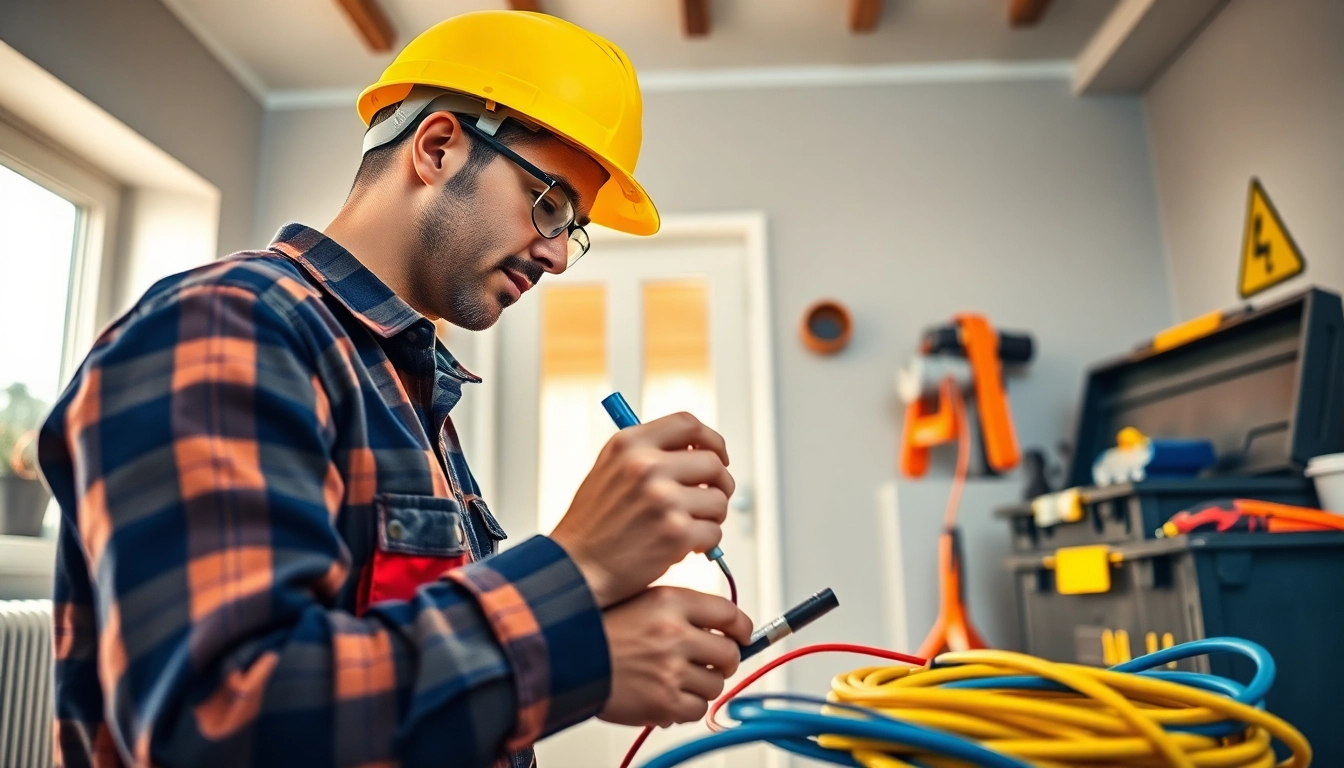The Role of an Electrical Contractor
Electrical contractors are essential players in the construction and maintenance of electrical systems in residential, commercial, and industrial properties. They are responsible for a wide range of tasks, including the installation, repair, and maintenance of electrical systems and equipment. By hiring a qualified Electrical Contractor, clients can ensure their projects are executed safely, effectively, and in compliance with relevant codes and standards.
What Does an Electrical Contractor Do?
The role of an electrical contractor encompasses various responsibilities. They are typically licensed professionals with expertise in dealing with electrical systems. Their primary duties include:
- Installing electrical systems: This involves connecting wiring, circuit breakers, and fixtures according to local codes and safety standards.
- Repairing existing systems: Electrical contractors diagnose issues such as faulty wiring or non-functional appliances and perform necessary repairs.
- Conducting inspections: They assess electrical systems to ensure they meet safety regulations, often providing certification upon completion.
- Upgrading systems: Many contractors help clients modernize their electrical infrastructure, ensuring it is energy-efficient and capable of handling increased loads.
Types of Electrical Services Offered
Electrical contractors provide a broad spectrum of services that cater to different needs. Here are some common types:
- Residential Services: Installation and maintenance of home electrical systems, lighting, and outdoor wiring.
- Commercial Services: Installation of electrical systems in offices, retail spaces, and other commercial buildings, focusing on scalability and compliance with business-specific codes.
- Industrial Services: Specialized services in manufacturing facilities requiring high-voltage installations and intricate wiring systems.
- Emergency Services: 24/7 services for power outages, blown fuses, and other immediate electrical issues.
Importance of Hiring Licensed Contractors
Hiring a licensed electrical contractor is crucial for several reasons:
- Compliance with codes: Licensed electricians are familiar with local and national electrical codes, ensuring all work is compliant and safe.
- Insurance and liability: Licensed contractors carry insurance, which protects both them and the homeowner from potential damages or accidents that occur during the project.
- Quality workmanship: A licensed contractor has undergone extensive training and possesses the knowledge required to perform high-quality work.
How to Find a Reliable Electrical Contractor
Choosing the right electrical contractor is vital to the success of your project. Below are some effective strategies for finding a reliable professional.
Researching Local Electrical Contractors
Start by compiling a list of local electrical contractors. You can use online resources, such as directories and review sites, to find potential candidates. Pay attention to their location, as hiring a local contractor can lead to quicker response times and lowered travel costs. For example, sites like Yelp and Procore provide insight into the top-rated electrical contractors in your area, such as those serving Dallas, TX.
Reading Reviews and Testimonials
Customer reviews offer a wealth of information about a contractor’s performance. Look for feedback on:
- Overall satisfaction: Did previous clients express happiness with the service provided?
- Quality of work: Were projects completed to the client’s satisfaction?
- Timeliness: Did the contractor complete the work on schedule?
- Communication: Was the contractor responsive and easy to work with?
Examining Contractor Credentials and Licenses
Verify that any contractor you consider is appropriately licensed and registered to operate in your area. This credential helps ensure they have the skills and training necessary for the job. Additionally, contractor insurance protects you from potential liabilities.
Factors to Consider When Choosing an Electrical Contractor
When selecting an electrical contractor, several factors come into play, impacting both the efficiency and quality of your project.
Experience and Specialization Areas
Evaluate the contractor’s experience. Contractors with years of experience often provide more reliable services. It’s also essential to find a contractor who specializes in the type of electrical work you require—whether residential, commercial, or industrial settings.
Insurance and Liability Coverage
Always ensure your contractor is fully insured. This includes liability insurance, which covers potential damages to your property in case of an accident during the project. Moreover, worker’s compensation insurance is essential to cover any injuries that might occur to the workers on your site.
Cost Estimates and Quotations
Discuss cost estimates upfront and obtain detailed quotations from potential contractors. This should include labor, materials, and any additional fees. Gathering multiple quotes allows you to make an informed decision while ensuring you get the best value for your investment.
Common Services Provided by Electrical Contractors
Understanding the typical services offered by electrical contractors can guide your decision-making process.
Residential Electrical Installations
Residential electricians handle a variety of tasks, including:
- Wiring new constructions or renovations
- Installing outlets, lighting fixtures, and ceiling fans
- Upgrading electrical panels to accommodate modern electrical needs
Commercial Electrical Services
Commercial contractors specialize in larger projects that may involve:
- Installing comprehensive electrical systems in commercial buildings
- Designing and implementing energy-efficient solutions
- Conducting repairs and maintenance on existing systems
Maintenance and Repair Solutions
Regular maintenance helps prevent costly repairs and work interruptions. Electrical contractors should offer:
- System inspections to identify potential hazards and system reliability
- Emergency repair services for outages or accidents
- Upgrades to outdated systems to align with the latest safety standards
Ensuring Your Project’s Success with the Right Contractor
After selecting a contractor, ensuring the project’s success requires clear communication and thorough planning.
Setting Clear Expectations and Contracts
Develop a detailed contract outlining project scope, timelines, payment schedules, and responsibilities for both parties. Clear expectations help avoid misunderstandings and set the foundation for a successful working relationship.
Communication and Project Management
Effective communication is key. Regular check-ins and updates can help both you and the contractor stay aligned throughout the project duration. Utilizing project management tools can streamline this process and enhance accountability.
Post-Project Evaluation and Follow-up
After the project’s completion, conduct a thorough evaluation with your contractor. This includes reviewing the work to ensure it meets your expectations and discussing any follow-up maintenance required. This proactive approach can build trust and pave the way for future projects.



